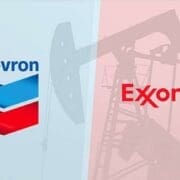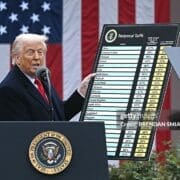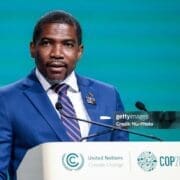News Americas, BRIDGETOWN, Barbados, June 24, 2025: With global demand for diverse content on the rise and the Caribbean offering some of the world’s most breathtaking filming locations, many industry leaders say the region is missing a golden opportunity to capture its share of the booming film and television market.
That message was clear at the second Cross Cultural Forum, hosted by CaribbeanTales Media Group in Bridgetown, Barbados from June 13-18th, where stakeholders discussed decolonizing co-production with film producers around the world, including the US, the UK, Canada, South Africa and the Caribbean. But the failure by many Caribbean nations to implement robust film tax incentives and co-production treaties to attract major productions globally was also exposed.
Invest Caribbean’s Felicia J. Persaud, l, moderating the CCF panel on June 14, 2025 in Bridgetown, Barbados.
Despite growing international competition, only a handful of Caribbean countries — including Trinidad and Tobago, the Dominican Republic, Jamaica, Puerto Rico, and the Cayman Islands — currently offer meaningful tax benefits or financing structures for film and TV productions.
Felicia J. Persaud, CEO of Invest Caribbean, who moderated a panel on investment and financing at the event, told News Americas she was shocked to learn that few Caribbean nations are tapping into this sector and putting laws in place to grow the sector and create cross border co-productions.
Success Stories Exist, But Gaps Remain
The Dominican Republic has become a regional leader, offering a 25% transferable tax credit, 18% VAT exemptions, and duty-free importation of film equipment. These policies, combined with diverse locations and year-round filming conditions, have attracted major international productions to the country.
Trinidad and Tobago provides rebates of up to 35% on eligible expenses, plus an additional 20% for hiring local labor, while Puerto Rico boasts a 40% tax credit on local spend for residents and a 20% credit for non-resident workers, making it a magnet for both Caribbean and Hollywood producers.
The Cayman Islands recently entered the game, offering cash rebates of up to 35%, alongside its tax-neutral business environment.
Yet, many other Caribbean nations — including top destinations like Barbados, St. Lucia, and Antigua — lack formal tax credits or structured programs to attract productions, limiting economic opportunities.
Kaye Greenidge, CEO of Invest Barbados, confirmed at the forum that Barbados is still working toward finalizing a comprehensive incentive system, despite existing benefits like VAT exemptions for registered providers.
Global Examples Show the Way
The importance of co-production treaties — formal agreements between countries to jointly develop film projects — was also highlighted at the forum.
South Africa, for example, has treaties with several nations, enabling producers to access tax credits, financing, and local resources. However, as Jackie Motsepe, COO of KZN Film & Tourism Authority, confirmed that there are currently no co-production treaties between South Africa and any Caribbean nation, representing a missed opportunity for cross-regional collaboration.
In contrast, Canada, the UK, and Australia have leveraged co-production treaties to grow their creative industries. Canada alone has agreements with nearly 60 countries, enabling productions to access significant tax credits, funding, and reduced risk by pooling resources.
“Without co-production treaties, Caribbean filmmakers face barriers to financing and global distribution,” Persaud emphasized. “The region’s creative talent is undeniable — but policy is lagging behind.”
A Call for Regional Action
Industry experts agree: introducing film-friendly tax incentives and co-production agreements isn’t just about attracting Hollywood blockbusters. It’s about creating jobs, building local production capacity, and showcasing authentic Caribbean stories to the world.
“Other countries are ahead because they’ve made film a national economic priority,” Persaud said. “We need to do the same.”
The question remains: will more Caribbean nations seize the moment, or will the region continue to watch lucrative productions — and the economic benefits they bring — go elsewhere?
Common Ways Films Are Financed
Equity Investment
Private investors or companies contribute capital in exchange for a share of future profits.
High risk, high reward — they only recoup money if the film is successful.
Often sourced from:
Private wealth (high-net-worth individuals)
Film funds or investment groups
Production companies
Pre-Sales
Producers sell the rights to distribute the film in specific countries before the film is made.
Based on the script, cast, or director’s reputation.
Often used as collateral to raise other financing (like loans).
Common in international markets, especially with recognizable talent attached.
Tax Incentives & Rebates
Governments offer cash rebates, tax credits, or exemptions for films shot in their country.
Can cover 20% to 40%+ of qualified production spend in locations like Canada, the UK, Puerto Rico, or the Dominican Republic.
Attracts productions to stimulate local economies.
Co-Productions
Two or more companies from different countries collaborate, sharing costs and access to each country’s incentives.
Requires co-production treaties or agreements.
Helps spread risk, access broader talent pools, and tap into global financing.
Gap Financing
A loan that covers the “gap” between confirmed funding (pre-sales, tax credits) and the total budget.
Secured against future revenue streams, like remaining territories or post-sale revenues.
Considered higher risk — lenders charge premium interest rates.
Completion Bonds
Insurance that guarantees the film will be finished on time and within budget.
Required by many investors or lenders to reduce risk.
Completion bond companies may step in to manage the production if issues arise.
Product Placement & Brand Sponsorship
Brands pay to feature their products within the film.
Can offset production costs.
Works best for mainstream, commercial films with wide appeal.
Grants & Public Funding
Non-repayable funds from film commissions, arts councils, or cultural organizations.
Often aimed at supporting local talent or culturally significant content.
Amounts vary, competitive application process.
Crowdfunding
Public contributions through platforms like Kickstarter or Indiegogo.
Typically used for smaller, independent projects.
Can also build early audience engagement.
Example: A Caribbean Film Might Be Financed By:
Equity from private Caribbean investors
Pre-sales to broadcasters or streamers in the diaspora
Tax credits from the Dominican Republic or Trinidad
Co-production deal with Canada or the UK
Local tourism board grants for showcasing the island
Completion bond to reassure international partners.







